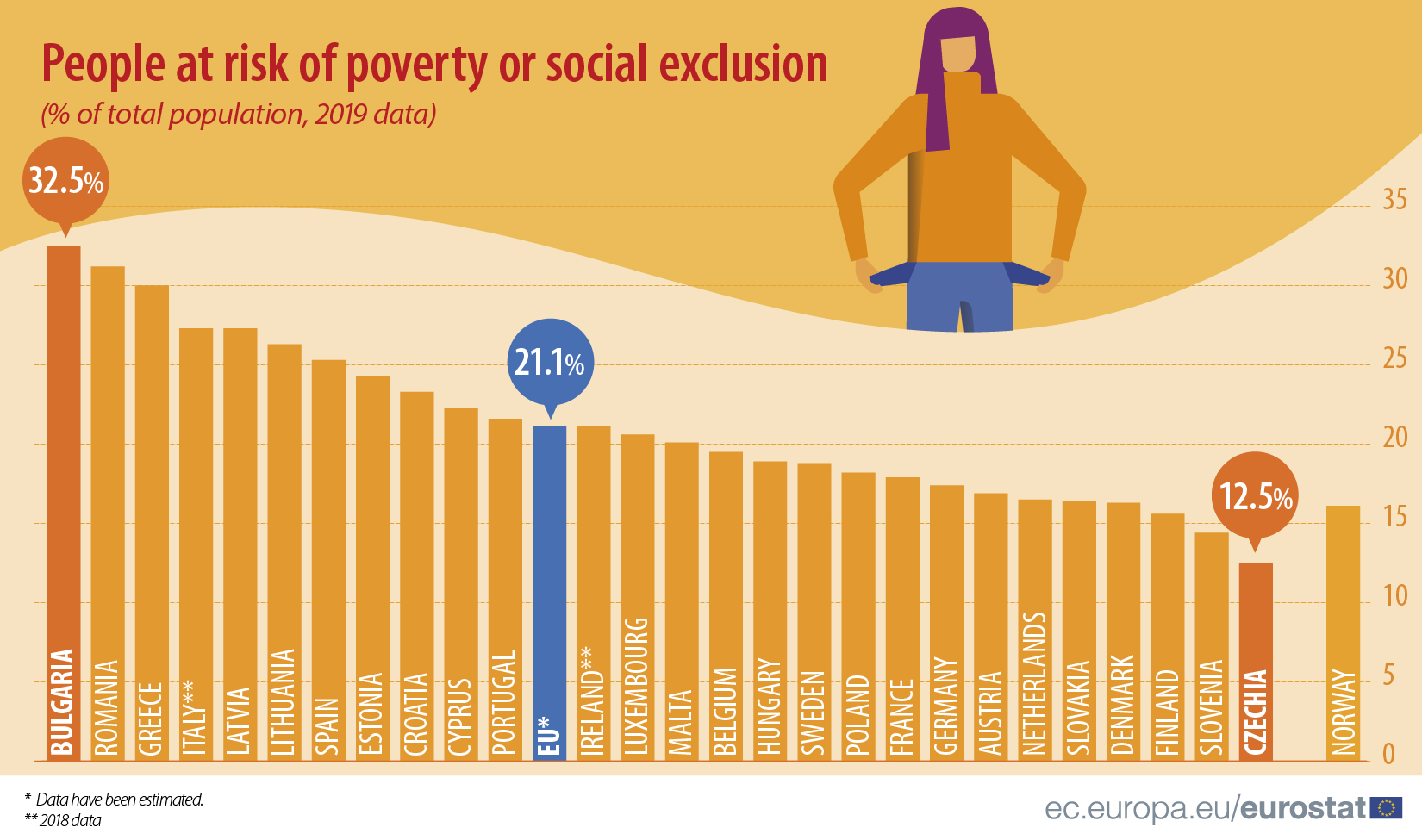
In 2019, 21.1% of the population in the European Union (EU), equivalent to 92.4 million people, were at risk of poverty or social exclusion, slightly down from 2018 (21.6%).
These data on poverty and social exclusion in 2019, the year before EU Member States introduced the measures against the spread of COVID-19, will serve as one of the benchmarks for analysing the economic and social impact of the COVID-19 pandemic in 2020.
Highest at risk of poverty or social exclusion rate in Bulgaria, lowest in Czechia
More than a quarter of the population was at risk of poverty or social exclusion in seven Member States in 2019: Bulgaria (32.5%), Romania (31.2%), Greece (30.0%), Italy and Latvia (both 27.3%, 2018 data for Italy), Lithuania (26.3%) and Spain (25.3%).
In contrast, the lowest shares of persons being at risk of poverty or social exclusion were recorded in Czechia (12.5%), Slovenia (14.4%), Finland (15.6%), Denmark (16.3%), Slovakia (16.4%), the Netherlands (16.5%) and Austria (16.9%).